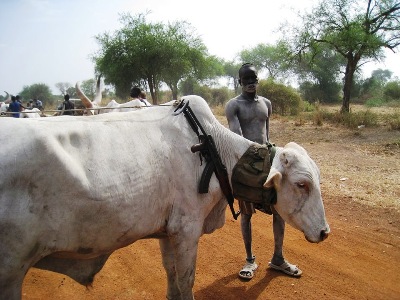UN supports education in S. Sudan pastoralist communities
November 18, 2017 (JUBA) – South Sudan government in partnership with United Nations Food and Agriculture Organization (FAO) and the UN Educational, Scientific and Cultural Organization (UNESCO), have unveiled on an initiative to provide extended education services to nomadic pastoralist communities.

Serge Tissot, the FAO Representative in South Sudan, said PLEFS, the first of its kind in South Sudan, will provide pastoralists with sustainable and high-quality learning opportunities as they move.
“The partnership between the three line ministries, FAO and UNESCO is unique and has realized a way for marginalized communities to access vital services in challenging conditions,” said Tissot.
“FAO is committed to strengthening livelihoods, and integrating basic literacy and numeracy skills into the field school approach really improves pastoralists’ way of life,” he added.
The program, officials said, is currently being implemented by FAO and UNESCO in the central regions and it will be brought to other pastoral communities across the country in the near future.
“It is our long-term vision to see to it that pastoralist communities receive adequate services and infrastructure to improve their livelihoods,” said James Janka Duku, Minister of Livestock and Fisheries.
Illiteracy rates are high in South Sudan, a country that broke away from Sudan in July 2011. More than 80% of the South Sudanese population, UN estimates show, cannot read or write. Also, according to the UN Children Fund (UNICEF), fewer than 1% of girls in South Sudan complete primary education.
(ST)
